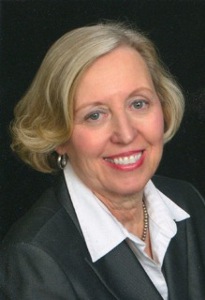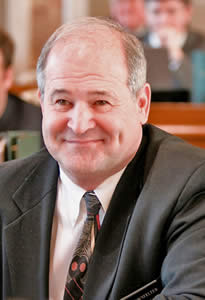
Newsletter from Sen. Pat Pettey, D-6th Dist.
In this issue:
• Legislature begins second half of session
• School finance decision
• Property tax transparency
• Judicial budget
• Kudos to Wyandotte County Democrats
• Health information
• Important state phone numbers
Legislature begins second half of session
Legislators were back in the Capitol Wednesday, following a short recess. My time will continue to be split between committees and floor debates for the next few weeks. At the end of March, we hit the deadline for non-exempt bills to be out of their second chamber. With little time left in the session, I encourage you to contact me with any concerns or questions you have about bills or committee meetings.
The Senate convenes Monday-Thursday at 2:30 p.m. and Friday at 8 a.m. To listen to legislative proceedings, just click on “Listen in Live” on the homepage of www.kslegislature.org. You can also find daily calendars, committee and district information, and full text and summaries of bills on that website. If you have any questions about any bills, feel free to contact my office at 785-296-7375 or stop by my legislative office, located in 125-E of the Topeka Statehouse. My assistant’s name is Jennifer Parson.
School finance decision
The Kansas Supreme Court affirmed Friday that Gov. Brownback and the Kansas Legislature have created an unconstitutional school finance system in its ruling on the school finance lawsuit Gannon vs. State of Kansas.
The court ruled that the legislature must fund capital outlay and the local equalization fund by July 1, 2014, to address funding inequalities. This will require approximately $129 million.
Additionally, the Supreme Court ruled that the District Court must further review and determine if lawmakers also failed to fund schools adequately. This is what will impact the base state aid per pupil amount.
We predict that it will not take long for the District Court to review this and provide its opinion.
The bottom line here is that the court made it clear that it is time to restore the cuts Gov. Brownback made to our schools. This is not about fixing a broken formula, as Brownback once claimed; it’s about funding the formula.
Property tax transparency
On a vote of 39-0 the Senate passed a bill that would modifies the prohibitions on cities, counties, school districts, community colleges, and other taxing subdivisions from approving annual budgets or other appropriations funded by property taxes that exceed the property tax revenue collected in the preceding year by allowing for adjustments based on changes in the consumer price index and lowering the amount of ad valorem tax to reduce any increase in property valuation above the increase in the consumer price index.
This bill also requires governing bodies to provide publication of such vote in official county newspapers.
During the debate on HB2047, Senate Democratic Leader Anthony Hensley attempted to restore funding to a program that provides property tax relief.
Hensley offered an amendment that would have put $45 million into the Local Ad Valorem Tax Reduction Fund, a fund established as a trade-off with local units of government. The fund has not received a single dollar since the 2008 recession set in. The amendment failed on a roll call vote of 14-23. I voted in favor of it.
Additionally, my Democrat colleague Sen. Tom Holland (Baldwin City) offered an amendment to require the state to publish in every county newsletter the votes of state senators and representatives when a bill passes in the legislature that would most likely result in increased residential property taxes. 31. I voted in favor of it.
The legislature has a responsibility to let our constituents know when we take action that will increase property taxes. This legislation is another way for the legislature to undermine Home Rule.
Judicial budget
The Senate also approved an omnibus bill that impacts the Judicial Branch’s budget and policies. Senate Substitute for House Bill 2338 is made up of five different bills, coming from two different committees that appropriates $2 million in additional funding from the State General Fund to the Judicial Branch in FY2015, which begins July 1, 2014.
It also increases filing fees to fund the costs of non-judicial personnel. Additionally, it modifies statutes governing Judicial Branch operations concerning budgeting, the election of chief judges, and allowing for a delay in filling judicial vacancies for up to 120 days.
The modifications include allowing each chief judge in each judicial district in the state to “opt-in” for responsibility of their budget and establishing that the district court judges in each judicial district would elect a district judge to serve as chief judge.
Currently, the chief judges are appointed by the Kansas Supreme Court.
Finally, this bill eliminates the statutory requirement for the payment of longevity to Judicial Branch non-judicial staff. The bill passed on a vote of 23-12. I voted against it. This bill unprecedentedly blends budget and policy decisions. I oppose the policy modifications.
The policy portion of this legislation appears to be an attempt to further erode the authority of the Supreme Court in Kansas. We deserve to have a independent judicial system state wide and this legislation moves in the wrong direction.
HB 2599, Boat ramp in Wyandotte County
This bill authorizes the Secretary of State to grant an easement to the Unified Government of Wyandotte County for a boat ramp to be used solely for fire department water training and rescue use.
This bill will allow the UG to make use of federal funds they received for this purpose. This bill passed unanimously.
Kudos to Wyandotte County Democrats
Congratulations to Bill Reardon on receiving the Anthony Hensley Legislative Achievement Award this weekend at Washington Days. Bill is a former legislator who represented the Kansas City area for 34 years. He is now a lobbyist for the Kansas City, Kansas School District.
Congratulations to David and Joan Spero on receiving the Chair’s Special Support Award at Washington Days. They have been long time Democratic activists in Kansas City, Kan., with the party and the Postal Workers’ Union.
Health information
From the American Heart Association: “In 2011, Americans spent about 40 percent of their food budget on food eaten outside the home. By eating at home you have more control over portion size and you can prepare foods with fresher ingredients and less fat and sodium.”
“1 in 3 children and adolescents, ages 2-19, are overweight or obese and nearly none meet healthy diet and physical activity recommendations.”
Important state phone numbers
Here is a list of numbers I often receive requests for during the Legislative Session. I hope you will find this information helpful.
Attorney General (888) 428-8436
Child Abuse Hotline (800) 922-5330
Consumer Protection (800) 432-2310
Crime Tip Hotline (800) 572-7463
Crime Victim Referral (800) 828-9745
Department on Aging (800) 432-3535
Driver’s License Bureau (785) 296-3963
Fraud Hotline (800) 432-3919
KPERS (888) 275-5737
Governor’s Office (877) 579-6757
Highway Conditions (800) 585-7623
Housing Hotline (800) 752-4422
KanCare Consumer Assistance (866) 305-5147
Kansas Jobs (785) 235-5627
Kansas Lottery (785) 296-5700
Kansas State Library (800) 432-3924
Legislative Hotline (800) 432-3924
School Safety Hotline (877) 626-8203
Social Security (800) 772-1213
DCF (785) 296-1491
Suicide Prevention Hotline (800) 273-8255
Tax Refund Status Info (800) 894-0318
Taxpayer Assistance (785) 368-8222
Unclaimed Property (800) 432-0386
Vital Statistics (Birth Certificates) (785) 296-1400
Victims of Human Trafficking (888) 373-7888

